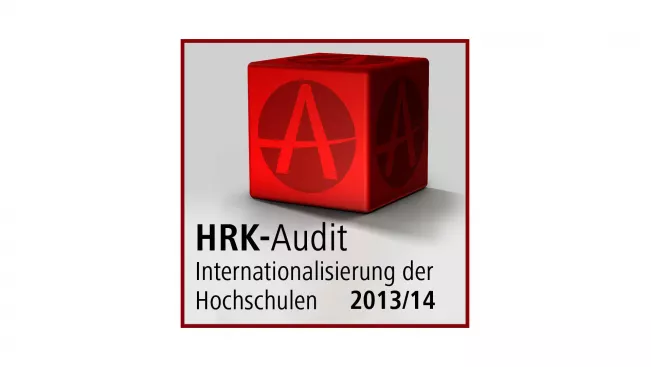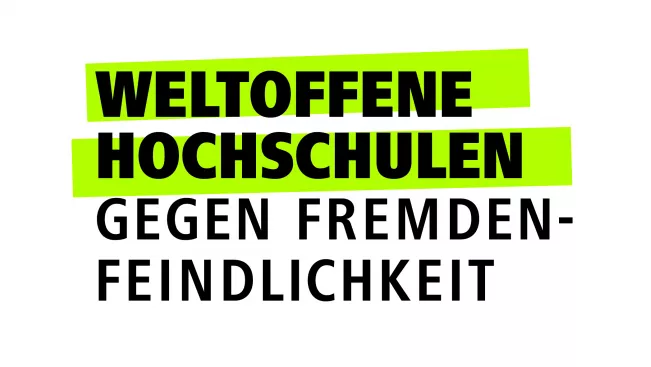International affairs
Our Internationalisation strategy
Our self-concept
In our view, science would be unthinkable without global networking and intercultural competence. The major challenges facing modern societies do not stop at national borders and require global approaches to the development of solutions. For us, science is and has always been integrated into international networks. Internationalisation is consequently an integral part of our self-perception.
International and intercultural skills are needed by our regional and supraregional job markets and are increasingly being expected as a matter of course. Our graduates acquire these skills and are therefore able to master challenges posed by globalised working and living environments. Our employees appreciate the opportunity to cooperate with international colleagues and strive for excellence through international networking in the fields of teaching, research, transfer and governance.
Our goals
We are a cosmopolitan university. On our international campus, we welcome a wide variety of cultures which engage with one another to the benefit of all.
In the field of internationalisation, we have set ourselves the following goals:
- we will maintain a portfolio of various internationalisation services in the fields of teaching, research, transfer and administration for the benefit of all members of the university. By welcoming students and staff from abroad, we will strive for excellence and facilitate the acquisition of extensive intercultural experience
- through our internationalisation services, our university will draw attention to its distinguishing hallmarks of practical orientation and cooperation with civil society in order to shape its profile. We will also use our network in business and society to internationalise our fields of action (interlinking our transfer and internationalisation strategies)
- digital tools will enable us to cross international borders without leaving the campus (“virtual mobility”). We will develop and test digital formats and appropriate methods in the fields of teaching, research, transfer and administration, thus enabling more and more university members to benefit from cross-border cooperation and to develop international competence
- we will expand and intensify our cooperation with European partners, establish new networks in future markets and emerging technology nations, and support knowledge transfer and cultural exchange with developing and emerging countries
- our university’s international connections on the one hand and our positioning within the region on the other will be promoted and made visible by the use of the German and English languages on campus.
Our measures
The Vice-President for International Affairs and Diversity with his staff, the International Office with the Welcome Centre, the Language Centre and the International Centre for Sustainable Development (IZNE) all drive the internationalisation measures to be implemented at H-BRS. They provide stimuli and assist each division with the development and expansion of their international competences and services. The following measures will advance the implementation of the internationalisation and diversity strategies at our university:
Campus International
- We will be continuing the successful programme “H-BRS International Chair”. This allows the departments to invite international scientists to our university to teach and conduct research in the English language.
- By offering international summer schools and similar services, we facilitate low-threshold entry into an international scientific environment, connect with foreign partners and pave the way for further international cooperation.
- The administration will continue expanding its processes in the English language. In particular, it will provide guidance and support when recruiting and integrating international staff at all levels.
Digital internationalisation
- We will use the opportunities provided by digital tools to cross national borders in the fields of teaching, research and transfer. The departments will test and set up courses involving students and teachers from abroad, thus allowing our students on site to gain international experience. We will set up digital advisory services for students from other countries.
- In cooperation with our university partners, we will develop a digital general studies course in the English language which will enable our students to acquire study points.
Dovetailing the internationalisation and transfer strategies
- We will expand those of our services which allow students to acquire international competence and practical experience, and will also increase the visibility of these services on campus (e.g. internships with international companies).
- Our business and civil society network will be expanded with an eye to international partners. These are not only located abroad: we also work with international players in the region.
- The companies in the region which cooperate with us need highly-qualified staff with international experience. However, foreign graduates from H-BRS have to overcome a special set of obstacles before they can transition to a career. We will provide them with specialised training so that they can make use of the opportunities available on the regional job market.
Focal regions and international partnerships
- Our partners and international activities span the globe. We intend to expand our network of partners with special attention to regions with future potential, particularly in Europe and the emerging technological nations (e.g. China, South Korea). We will also be intensifying our cooperation with selected institutions and turning them into strategic partners.
Mobility for all university members
- We will continue our successful efforts to secure mobility funding (also for virtual mobility).
- Researchers will be supported in their efforts to form international cooperative networks with an eye to joint project applications.
- H-BRS will increase the visibility of international exchange options for staff who work in the university’s administrative departments and all its divisions.
Contact

Jürgen Bode
Vice President for International Affairs and Diversity, Professor at the Department of Management Sciences (Rheinbach Campus), Alumni Commissioner
Location
Rheinbach
Room
B 124
Address
von-Liebig-Straße 20
53359, Rheinbach
Telephone
+49 2241 865 604
